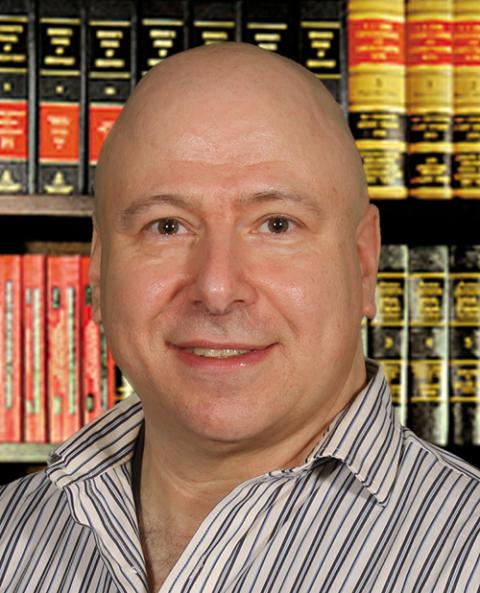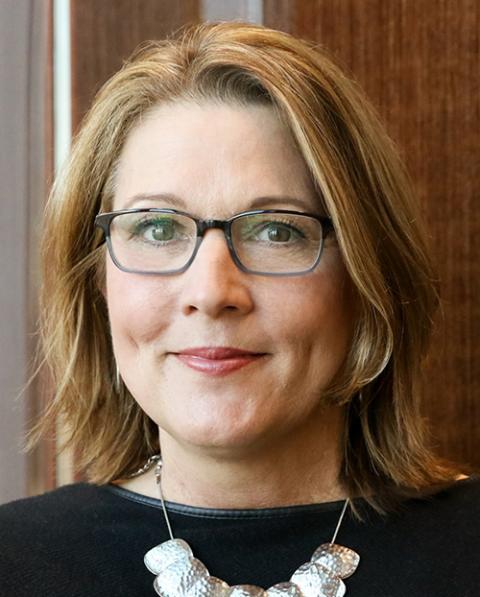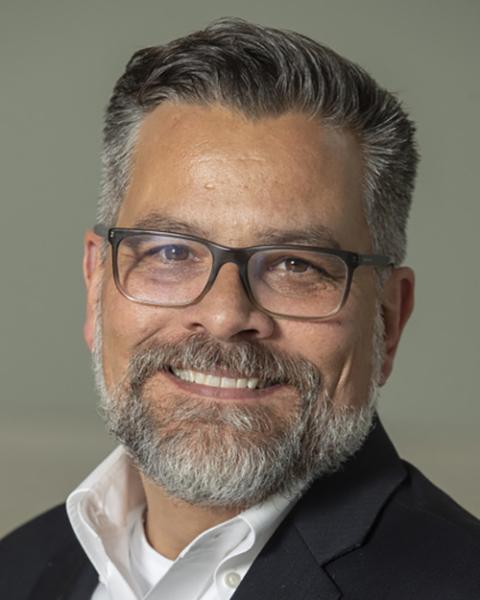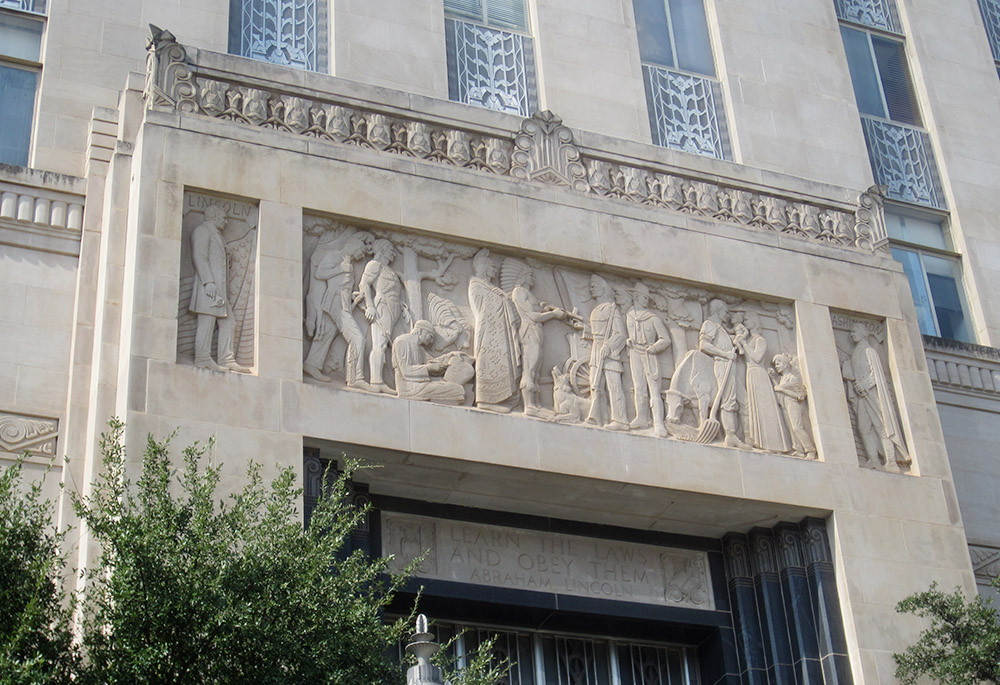
A carved mural depicting Oklahoma history is seen above the main entrance of the Oklahoma County Courthouse in Oklahoma City. A group called the Oklahoma Parent Legislative Action Committee has filed a lawsuit in Oklahoma County District Court, challenging the constitutionality of the planned taxpayer-funded St. Isidore Virtual Catholic Charter School. (Wikimedia Commons/Another Believer)
Catholic leaders in Oklahoma are proceeding with plans to operate the nation's first taxpayer-funded religious public charter school, which critics and some legal scholars say violates the U.S. Constitution's prohibition against the government establishing or sponsoring religion.
The constitutionality of St. Isidore Virtual Catholic Charter School is the subject of lawsuits in two Oklahoma state courts. Several observers expect the matter will eventually be heard in the federal courts, with a strong likelihood that the U.S. Supreme Court will be asked to decide a case that could have significant ramifications for the separation of church and state.
"If somehow this school succeeds, then I think we can say there's literally nothing left of the wall of separation," said Frank Ravitch, a professor at Michigan State University's College of Law who studies the relationship between law and religion in the United States.
Ravitch told NCR that the high court's decisions in recent years have chipped away at what was once a bedrock constitutional principle of government neutrality in matters of religion and public life. He noted the court's 2022 ruling in Carson v. Makin, which allowed a tuition voucher program in Maine to be used at private religious schools. He also cited the court's 2021 decision in Kennedy v. Bremerton School District, which determined a public high school football coach's postgame prayer on the 50-yard line was protected private speech.
"There's still something left of the Establishment Clause, but there really isn't much of a wall left," Ravitch said. "It's more a pile of rubble that still manages to keep some stuff separate. We're really in the Wild West of case law on this."
In the case of St. Isidore, the Supreme Court may have to determine whether or not a religious organization becomes an arm of the state if it receives public funds to operate a public charter school.
Attorneys for St. Isidore argue in court documents that the charter school is akin to a private contractor in the same way that religious agencies contract with the government to provide various social services such as refugee resettlement and foster care placement.
"States routinely partner with private organizations to serve the public; that does not render those organizations 'part of' the government itself," St. Isidore's lawyers wrote in their response to a lawsuit challenging the school's constitutionality.
'There's still something left of the Establishment Clause, but there really isn't much of a wall left. It's more a pile of rubble that still manages to keep some stuff separate.'
—Frank Ravitch
Approved by a state education board last summer amid significant controversy, St. Isidore Virtual Catholic Charter School is set to open this year as a K-12 public school that would educate students in underserved Oklahoma rural counties while also being described as a "place of evangelization" that "participates in the evangelizing mission of the Church."
In January 2023, Oklahoma City Archbishop Paul Coakley and Tulsa Bishop David Konderla incorporated St. Isidore as a nonprofit corporation in Oklahoma. The bishops serve as corporation members while officials from both dioceses sit on the school's Board of Directors.
In their application to the Oklahoma Statewide Virtual Charter School Board, the state's Catholic leaders said St. Isidore will be a Catholic school operated "in harmony with faith and morals, including sexual morality, as taught and understood by the Magisterium of the Catholic Church based upon Holy Scripture and Sacred Tradition."
In an article posted by the University of Notre Dame Law School — the law school's Religious Liberty Clinic is representing St. Isidore in court — Coakley said the school will provide an educational foundation for Oklahoma families who "do not currently have access to a rigorous, integrated, and authentically Catholic education that forms the whole person."
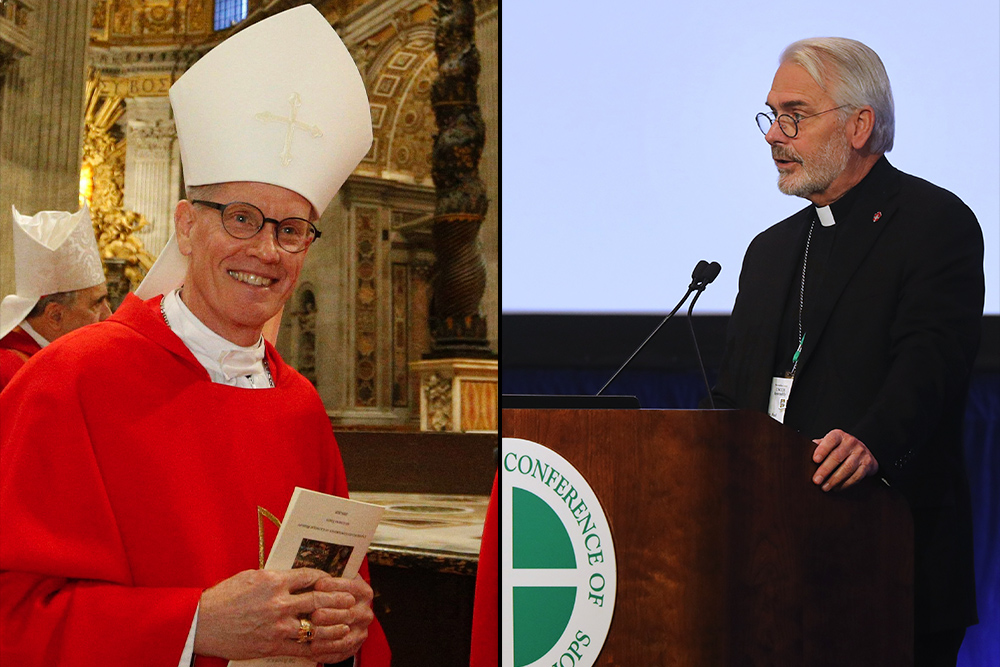
Left: Bishop David Konderla of Tulsa, Oklahoma, at the Vatican in January 2020 (CNS/Paul Haring). Right: Archbishop Paul Coakley of Oklahoma City speaks during the U.S. bishops' November 2023 general assembly in Baltimore (OSV News/Bob Roller).
The contract that the Oklahoma Statewide Virtual Charter School Board signed with St. Isidore's board in October 2023 stipulates that the school will be free and open to all students "as a traditional public school," and that it will comply with local, state and federal laws pertaining to the education of children with disabilities and who are identified as English language learners.
While the contract says that St. Isidore will ensure that no student is denied admission based on race, sex, sexual orientation, gender identity or gender expression, its language also recognizes that the school may have "certain exemptions or entitlements" from laws and regulations based on its status as a religious organization.
In its revised application to the state's virtual charter school board, St. Isidore said it will comply with laws pertaining to nondiscrimination requirements and educating students with disabilities, "to the extent" that they do not compromise the school's religious tenets.
Opponents argue school violates state constitution
Opponents argue that the bishops' plan to operate a taxpayer-funded charter school according to a traditional Catholic educational model violates not only the Establishment Clause of the U.S. Constitution, but also provisions in the Oklahoma state constitution and the state's charter school law that explicitly prohibit public money from being used to support sectarian activities.
"In my opinion, that's pretty straightforward," said Melissa Abdo, a Catholic laywoman in Tulsa County. In July 2023, she signed on as a plaintiff to a lawsuit challenging St. Isidore's constitutionality.
Abdo, a longtime advocate for public education who is an elected member of the Jenks Public Schools Board of Education, told NCR that she has no animus toward Catholic schools and said she supports parents' rights to choose the best schools for their children.
"What I'm curious about, though, is why anyone would think that, as taxpayers, other Oklahomans are responsible for funding the religious education of their children. I just don't follow that line of thinking," Abdo said.
The Rev. Mitch Randall, a Baptist minister in Oklahoma who signed on as a plaintiff in the same lawsuit, told NCR that he opposes the use of public money to subsidize religious education, which he added already has a troubled history in the United States.
"I have seen the ramifications and harms done when the government supplies funds for the advancement of religion," said Randall, who noted the story of his late great-grandmother, who was a member of the Muscogee (Creek) Nation.
When his great-grandmother was a young girl in 1919, Randall said, authorities took her and her sister from their family and placed them in a government-funded boarding school for Indigenous children south of the Oklahoma-Kansas state line. There, Randall said they were forced to attend Christian worship services, and whipped if they didn't participate.
"All of this was conducted by Christian missionaries who had their funding through the federal government," said Randall, who argued that church and state need to remain separate in order for authentic religious liberty to thrive.
"My religious tradition historically has been one of celebrating religious liberty, and understanding that when church and state are separated, that is good for both the state and for the church," he said.
Abdo and Randall are among the plaintiffs in a lawsuit filed in Oklahoma County District Court by a group called the Oklahoma Parent Legislative Action Committee. The group is represented by attorneys from progressive organizations such as Americans United for Separation of Church and State, the Freedom from Religion Foundation and the American Civil Liberties Union.
'I have seen the ramifications and harms done when the government supplies funds for the advancement of religion.'
—The Rev. Mitch Randall
"The problem here is the Catholic Church running a Catholic school that is wholly and directly funded by tax dollars as a public school. That is a violation of the religious freedom of taxpayers, and it sets up an incredibly dangerous precedent for the rest of the country for our public schools," Rachel Laser, the president and CEO of Americans United for Separation of Church and State, told NCR.
Oklahoma Attorney General Gentner Drummond, a conservative Republican, has broken with Gov. Kevin Stitt and other Republican state lawmakers by opposing St. Isidore. In October 2022, Drummond filed a lawsuit with the Oklahoma Supreme Court to stop what he described as the state's "unlawful sponsorship" of a sectarian school.
He told Politico that he believes the school's "genesis" is linked to Christian nationalism.
"There are believers that are confusing true religion — and religious liberty, and faith in God — with political power. And this Christian nationalism is the movement that is giving oxygen to this attempt to eviscerate the Establishment Clause," Drummond said.
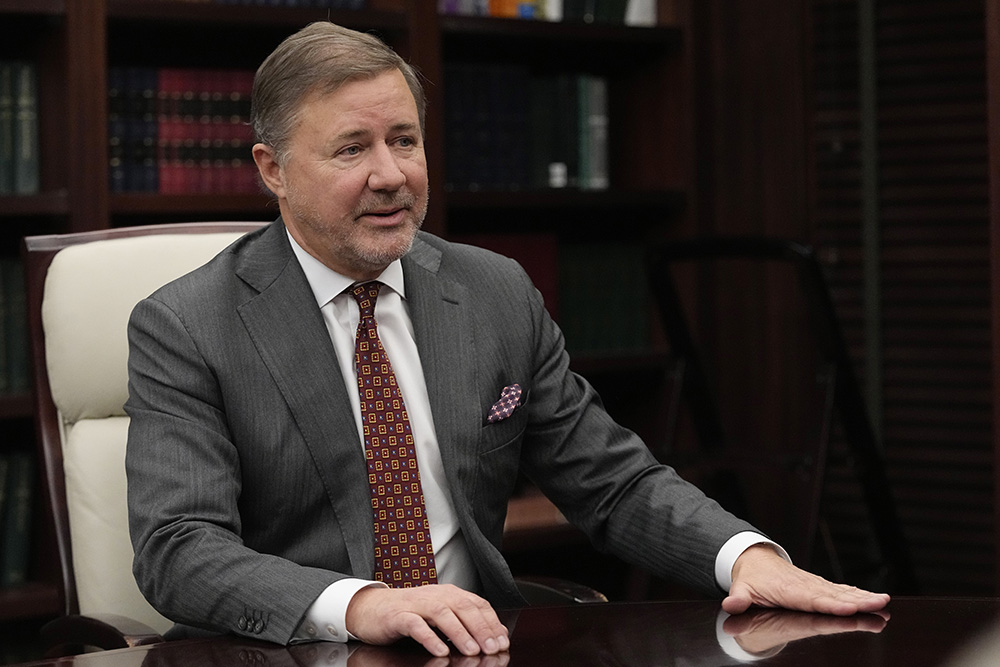
Oklahoma Attorney General Gentner Drummond (AP/Sue Ogrocki)
Spokespersons for the Oklahoma City Archdiocese and the Catholic Conference of Oklahoma declined NCR's requests for interviews, citing pending litigation.
In their responses to lawsuits challenging St. Isidore's constitutionality, the school's lawyers argue that the Supreme Court's recent decisions on religious free exercise claims affirm the right of Catholic and other religious groups to establish public charter schools in Oklahoma and in other states.
Besides arguing that charter schools are not really public schools because the government does not directly operate them in the same manner that it does traditional public schools, the attorneys for St. Isidore also claim that any provisions in Oklahoma constitutional or state law that prohibit religious groups from operating publicly funded charter schools are themselves unconstitutional according to the First Amendment's free exercise clause.
"On the merits, St. Isidore is plainly eligible to operate its virtual charter school under Oklahoma law and the U.S. Constitution," St. Isidore's attorneys wrote in their motion to dismiss the Oklahoma Parent Legislative Action Committee's lawsuit.
Advertisement
The Notre Dame Religious Liberty Clinic and Alliance Defending Freedom, a conservative Christian legal group that is also helping to represent St. Isidore, frame the case as one of religious discrimination against the Catholic Church and other religious groups that they argue have the same right as any private secular organization to set up a charter school.
"Laws prohibiting faith-based charter schools unconstitutionally discriminate against religion," Notre Dame Law School Professor Richard Garnett said in the article posted on the school's website.
Ravitch, the law and religion scholar at Michigan State University, said St. Isidore's lawyers are relying on "fundamentally flawed arguments" and trying to expand the Supreme Court's Makin ruling to apply to charter school funding.
"I understand the instinct they have in saying the state is only excluding religion, but no, the state excludes a lot," Ravitch said. "If any school is unwilling to follow the constitutional requirements that public schools have to follow, they're out. The state is not accepting any private entity that applies for a charter school."
In "normal times," Ravitch said, the plan to create a Catholic school funded completely by tax money would "have no chance of surviving legal scrutiny."
"I think it's brazenly unconstitutional to do this, because it's a public school," he said. "On the other hand, if someone asked me to bet what the Supreme Court will do, I don't know because I don't have confidence anymore that they will even follow their own precedent on this."

